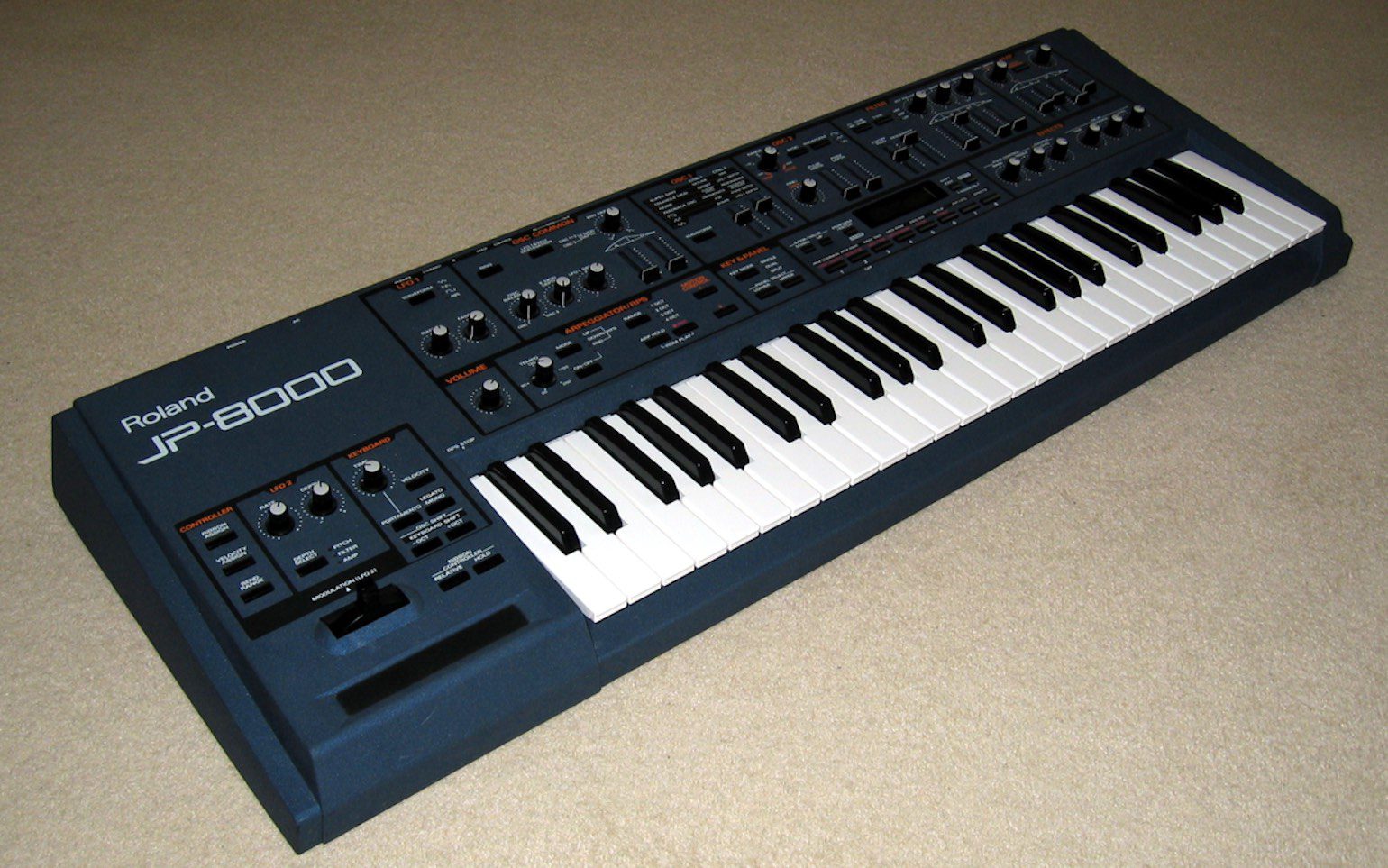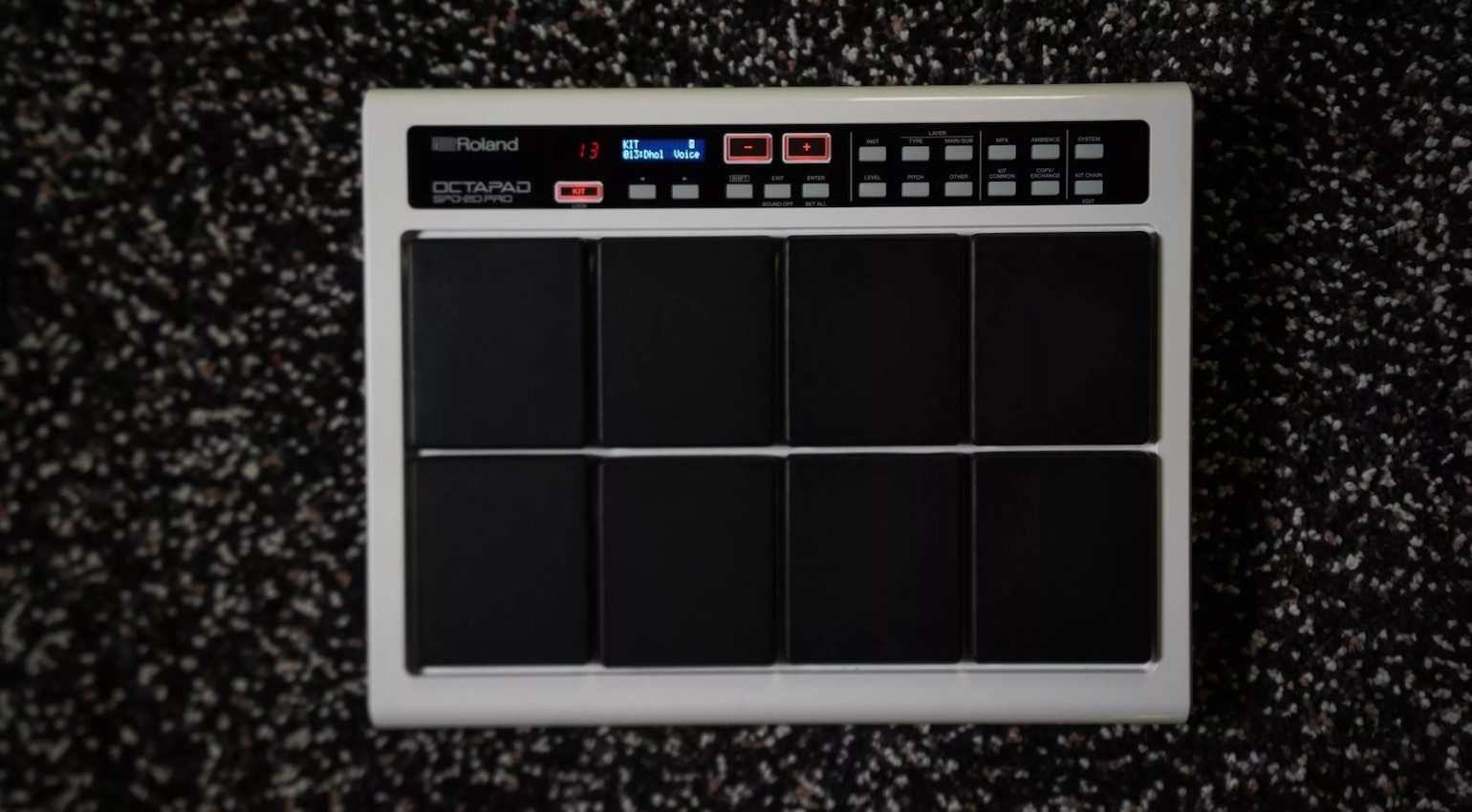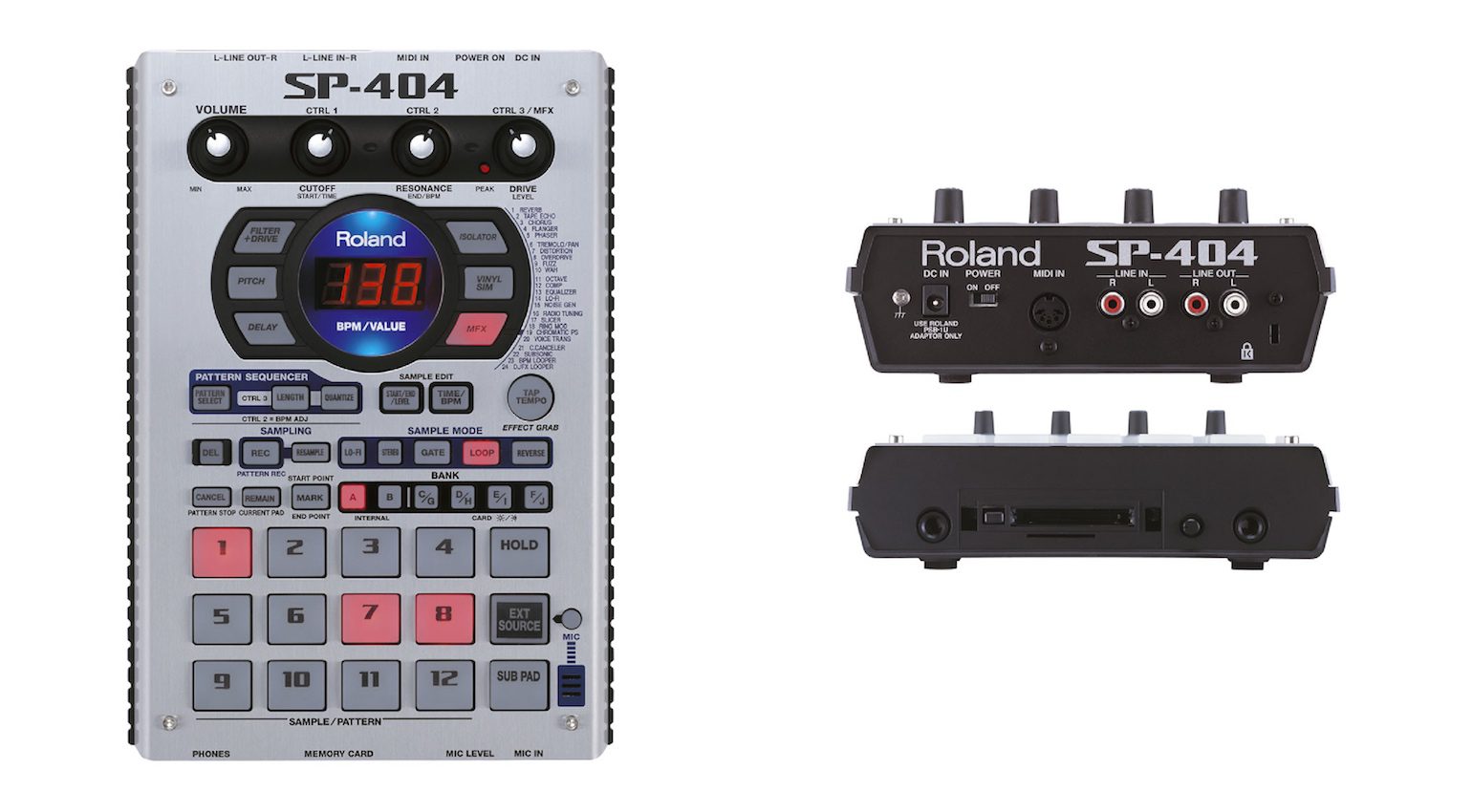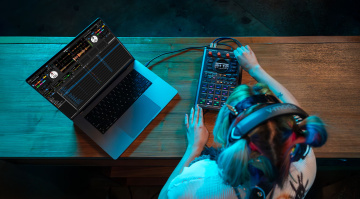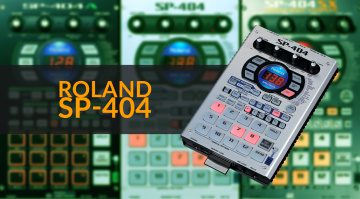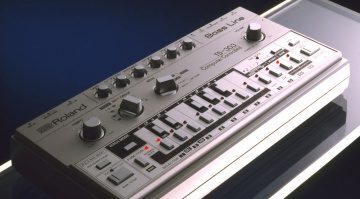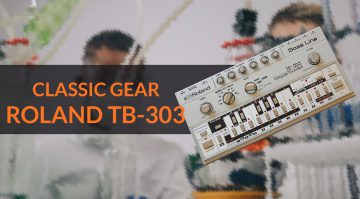Accidental Icons: The Roland TR-808, TB-303, SP-404 and More
The many times Roland changed music.
Has any other musical instrument company had so many unintentional hits as Roland? Here are five of its accidental icons.
Roland’s Accidental Icons
It’s frankly astonishing how many times Roland has unintentionally impacted the world of music with its instruments. No, I’m not talking about Bad Gear. I mean releases like the TR-808 and TB-303. These were instruments that far exceeded their creators’ intentions and took on a life of their own. And it’s happened more than just a few times! Here are five Roland instruments that accidentally changed the way we make music.
TR-808 Rhythm Composer
You know the story. In 1980 Roland released the TR-808, an analogue programmable drum machine with unique, electronic-sounding percussion. Despite some love from early adopters like Yellow Magic Orchestra, it had a hard time competing with the LinnDrum and its digital samples. Roland stopped production on the 808 within a few years and it was declared a failure.
However, thanks to Planet Rock by Afrika Bambaataa and Soul Sonic Force, it became the go-to beatbox for hip-hop artists. Over time, its legendary status only continued to grow. And, once artists started sampling its famous sub-bass kick and using it for pitched basslines, new genres like Miami bass, jungle, and trap were born.
You are currently viewing a placeholder content from Default. To access the actual content, click the button below. Please note that doing so will share data with third-party providers.
The 808 continues to inspire four decades later. Although originals sell for silly amounts of money, there are plenty of recreations on the market now in all sorts of formats, both hard and soft.

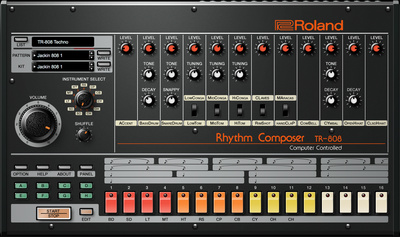

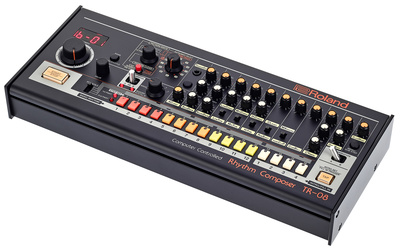

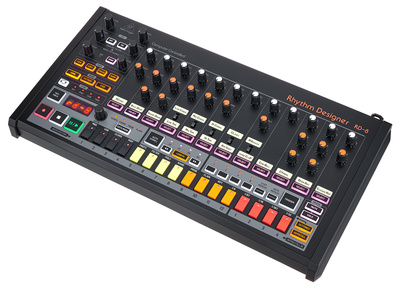
TB-303 Bass Line
A year later, Tadao Kikumoto, the chief engineer on the 808, designed the TB-303 Bass Line. Famously intended to be a bass player replacement for home practice, it was, like the 808, relatively disappointing in terms of sales. However, as with the 808, it was rediscovered after discontinuation by an unintended market – this time underground house music producers in Chicago.
The same things that made it unappealing to a broad audience – extremely simple synthesis controls, a bizarrely squelchy filter, and an impenetrable sequencer with slide and accent functions – made it the perfect grist for a new genre of music that prized psychedelia and experimentation over traditional musicality. Acieed!
It remains a much-desired instrument to this day, with a sound that subsequent generations of dance music performers continue to rediscover. Don’t worry if you can’t afford an original. Roland has re-released the 303 in a few different (albeit digital) versions and there are plenty of clones to satiate your lysergic needs available as well.

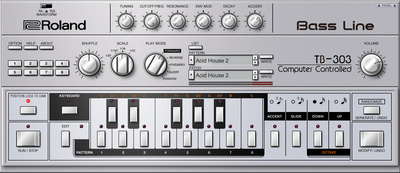

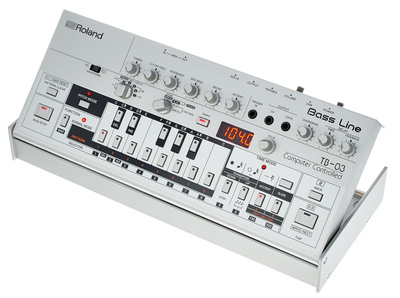

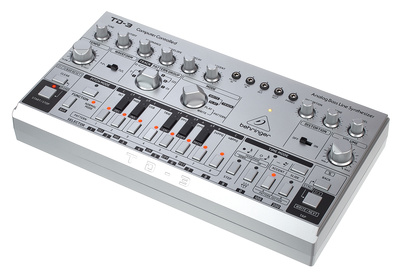
JP-8000 Music Synthesizer
By the mid-1990s, producers were tired of menu diving on digital synths and wanted analogue again. Synth manufacturers met them halfway. Building on technology developed out of physical modelling, punters were greeted with virtual analogue – a digital approximation of subtractive analogue synthesis complete with plenty of hands-on control. One of the brighter lights of the ‘90s VA revolution was Roland’s JP-8000, which made its mark on dance music production thanks to its now ubiquitous SuperSaw.
A stack of detuned sawtooth waves, the SuperSaw was (and still is!) a massive sound. It was almost immediately adopted by trance and other styles of electronic music producers. We old folks still remember how hard it was to spend even a few minutes in a club in the late ‘90s without being assaulted by a SuperSaw-impregnated melody.
The waveform is now a staple of Roland synthesizers like the Juno-X and Gaia 2, although surprisingly Roland has yet to give the JP-8000 the Boutique or Cloud treatment. Behringer, however, offers an alternative in the form of the JT-4000 Micro. Glowsticks at the ready.

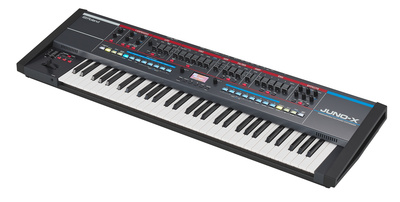

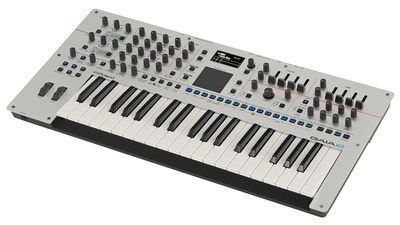

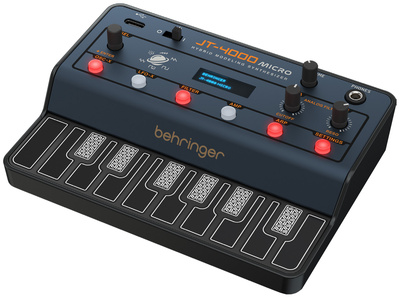
Octapad SPD-20
Here’s one you probably weren’t expecting. While the other entries in this list tend to feature in electronic music, the Octapad SPD-20 has had a very different – yet no less powerful – impact.
The first Octapad came out in 1985. It offered drummers a way to trigger sounds via MIDI drum pads and by the time of the release of the SPD-20 in 1998, Roland had added internal sounds as well. The inclusion of classical Indian drum sounds was wise as the SPD-20 took off in the subcontinent, creating an entirely new job description of Octapadist along the way and finding use in devotional and Bollywood-inspired styles of music.
Roland has continued the legacy of the SPD-20 with the SPD-20 Pro, which they designed with Indian players in mind. Of course, you don’t need to make Indian-inspired music to enjoy the SPD-20 series but if you’re looking to punch up your CV and think ‘Octapadist’ has a good ring to it, check one out.

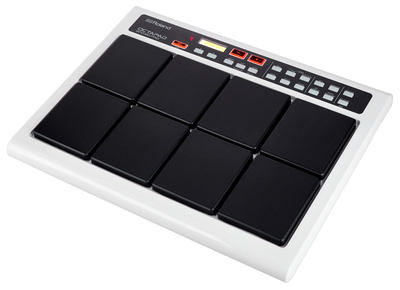
SP-404 Sampling Workstation
First released in 2005, Roland’s SP-404 Sampling Workstation expanded on the previous phrase sampler entries in the SP series and, over time, built into a monster of epic proportions. If you’re unfamiliar with the SP range, it started under the Boss name in 1998 with the SP-202. Originally intended as live soundboards, forward-thinking hip-hop producers adopted the SP devices despite (because of?) their limitations. Roland took notice, moved the line to the Roland name, and tried to capture sampling in a bottle with the 404.
It took a number of years but eventually, the SP-404 became the go-to sampler for a certain type of hip-hop producer. Think Flying Lotus and lo-fi heads. Along the way, the SP-404 crossed over from being a mere instrument to a bonafide cultural force, with not just live events organized around the single device but owners decorating them with custom skins and decals.
You are currently viewing a placeholder content from Default. To access the actual content, click the button below. Please note that doing so will share data with third-party providers.
Roland released a number of upgrades over the years, including the SP-404SX in 2009 and SP-404A in 2017. However, it was 2021’s SP-404MKII that really took the concept into the stratosphere. Now Roland even includes it in its calendar of famous “days”, with April 4 (404 Day) now taking its place alongside 303 Day, 808 Day, and 909 Day.

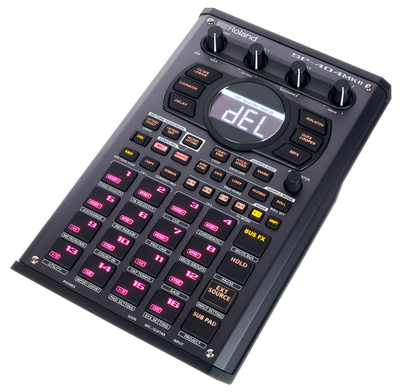
More Info:
- The history of Roland synthesizers
- All about Roland
- Roland’s homepage
- Everything vintage
Videos
You are currently viewing a placeholder content from YouTube. To access the actual content, click the button below. Please note that doing so will share data with third-party providers.
You are currently viewing a placeholder content from YouTube. To access the actual content, click the button below. Please note that doing so will share data with third-party providers.
You are currently viewing a placeholder content from YouTube. To access the actual content, click the button below. Please note that doing so will share data with third-party providers.
You are currently viewing a placeholder content from YouTube. To access the actual content, click the button below. Please note that doing so will share data with third-party providers.
You are currently viewing a placeholder content from YouTube. To access the actual content, click the button below. Please note that doing so will share data with third-party providers.
*Note: This article contains promotional links that help us fund our site. Don’t worry: the price for you always stays the same! We will receive a small commission if you buy something through these links. We appreciate your support!

 4,1 / 5,0 |
4,1 / 5,0 | 


